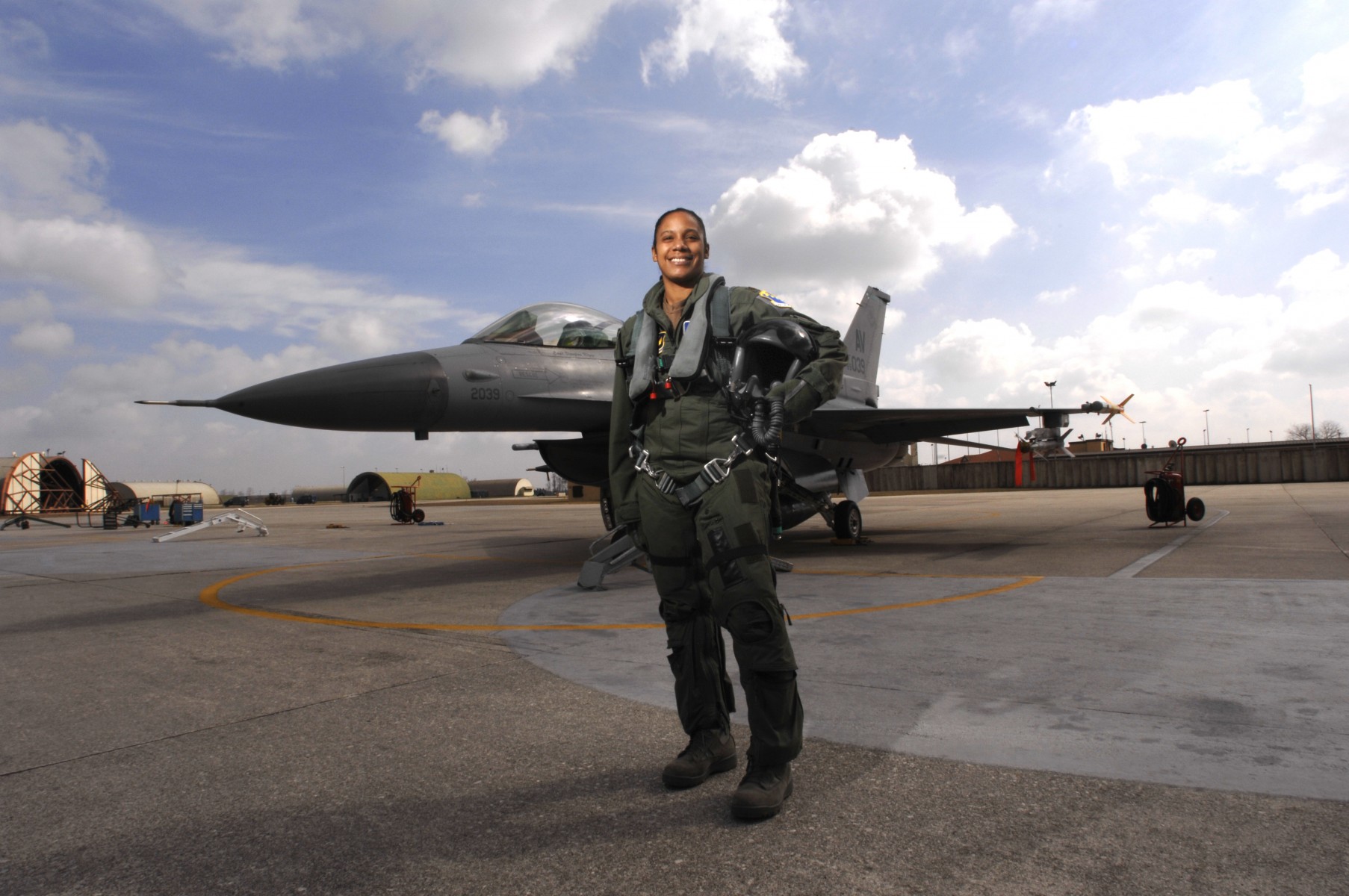Ambitious Cadet Became Air Force's 1st Black Female Fighter Pilot
Over 1 million young people have worn the Civil Air Patrol cadet uniform since Cadet Programs was founded in 1942. Countless thousands have grown into dynamic Americans and aerospace leaders. But one in particular — Shawna Rochelle “Lex” Kimbrell — stands out this February as CAP celebrates Black History Month.
Kimbrell, a CAP cadet in the Colorado Wing, went on to graduate from the U.S. Air Force Academy and became the Air Force's first black female fighter pilot.
 “I was never apprehensive about pursuing my dream,” said Kimbrell, who acknowledged wanting to be a fighter pilot as early as the fourth grade.
“I was never apprehensive about pursuing my dream,” said Kimbrell, who acknowledged wanting to be a fighter pilot as early as the fourth grade.
After earning her pilot wings in August 1999, Kimbrell flew over 170 combat hours in the F-16 Fighting Falcon during Operation Northern Watch in Iraq. “The sorties were anticlimactic until I recognized that people were actually shooting at us,” she told the Air Force News Service in 2012.
Kimbrell has enjoyed a successful career in the Air Force, earning an Air Medal with one device, an Aerial Achievement Medal and an Army Commendation Medal, among others.
Now a lieutenant colonel in the Air Force, she is stationed at Nellis Air Force Base, Nevada, where she is a member of the 78th Attack Squadron and serves as an MQ-9 pilot and mission commander.
Reflecting on her life, also in 2012, Kimbrell told Civil Air Patrol Volunteer magazine that CAP contributed greatly to her success.
“The military-like experience CAP afforded me really assisted with my transition to military life,” she said, adding that the cadet encampments she participated in as a cadet in Parker, Colorado, in the early 1990s gave her a sense of comfort when she went on to attend the Air Force Academy in Colorado Springs.
Kimbrell initially joined CAP to help her earn a pilot’s certificate. “But I ended up doing a lot more,” she said.
As team commander, Kimbrell led the Colorado Wing’s drill team to a first-place finish in the Rocky Mountain Region’s competition and then represented the region in the National Cadet Competition. She also commanded cadets in her local squadron.
“One of the most difficult things to do, I think, is to lead your peers,” she said, “and CAP is a great way to learn that skill.”


